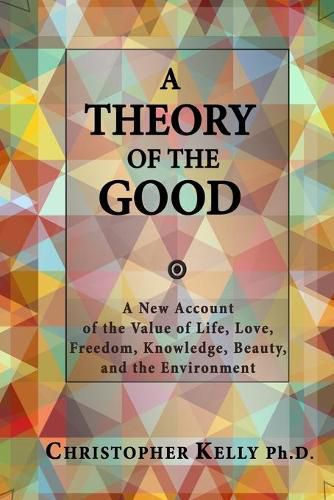Readings Newsletter
Become a Readings Member to make your shopping experience even easier.
Sign in or sign up for free!
You’re not far away from qualifying for FREE standard shipping within Australia
You’ve qualified for FREE standard shipping within Australia
The cart is loading…






In this remarkable book, Christopher Kelly offers a solution to the fundamental problem in philosophy-the nature of goodness. Philosophers are concerned with other problems-the nature of knowledge, reason, consciousness, happiness, life, beauty, love, and virtue, to name a few-but this is because these things seem good. Nihilists hold the bleak, implausible view that nothing is good. Subjectivists hold that things are good just to the extent that we desire them, while objectivists hold things are good independently of desire. Monists hold only one thing is good, their favorite candidate being pleasure. Pluralists hold that there is more than than one objective good but that nothing sensible can be said about what makes them good. Here Kelly develops a comprehensive theory of the good that is objective, monistic, and non-hedonistic. What makes things intrinsically good, according to Kelly, is a single attribute-richness. Richness can be characterized as the degree of unity in variety, unified complexity, or organic unity. The idea can be traced back to the ancients and resurfaces in the work of Leibniz, Hutcheson, and Nozick amongst others. But before Kelly no one developed this idea into a comprehensive theory of the good, one which explains and unifies a bewildering array of diverse value phenomena. Kelly’s theory both lays bare the fundamental nature of goodness and exemplifies it beautifully. It is a tour de force. Graham Oddie, author of Value, Reality, and Desire Kelly provides the fullest exposition and defense yet of an axiology more accurate than any of its rivals. Through his work and that of a few other recent philosophers, richness theory displaces utilitarian axiology as the truest theory of value. Kelly’s A Theory of the Good is clear, compelling, and engaging. Gregory M. Mikkelson, McGill University, environmental ethicist
$9.00 standard shipping within Australia
FREE standard shipping within Australia for orders over $100.00
Express & International shipping calculated at checkout
In this remarkable book, Christopher Kelly offers a solution to the fundamental problem in philosophy-the nature of goodness. Philosophers are concerned with other problems-the nature of knowledge, reason, consciousness, happiness, life, beauty, love, and virtue, to name a few-but this is because these things seem good. Nihilists hold the bleak, implausible view that nothing is good. Subjectivists hold that things are good just to the extent that we desire them, while objectivists hold things are good independently of desire. Monists hold only one thing is good, their favorite candidate being pleasure. Pluralists hold that there is more than than one objective good but that nothing sensible can be said about what makes them good. Here Kelly develops a comprehensive theory of the good that is objective, monistic, and non-hedonistic. What makes things intrinsically good, according to Kelly, is a single attribute-richness. Richness can be characterized as the degree of unity in variety, unified complexity, or organic unity. The idea can be traced back to the ancients and resurfaces in the work of Leibniz, Hutcheson, and Nozick amongst others. But before Kelly no one developed this idea into a comprehensive theory of the good, one which explains and unifies a bewildering array of diverse value phenomena. Kelly’s theory both lays bare the fundamental nature of goodness and exemplifies it beautifully. It is a tour de force. Graham Oddie, author of Value, Reality, and Desire Kelly provides the fullest exposition and defense yet of an axiology more accurate than any of its rivals. Through his work and that of a few other recent philosophers, richness theory displaces utilitarian axiology as the truest theory of value. Kelly’s A Theory of the Good is clear, compelling, and engaging. Gregory M. Mikkelson, McGill University, environmental ethicist